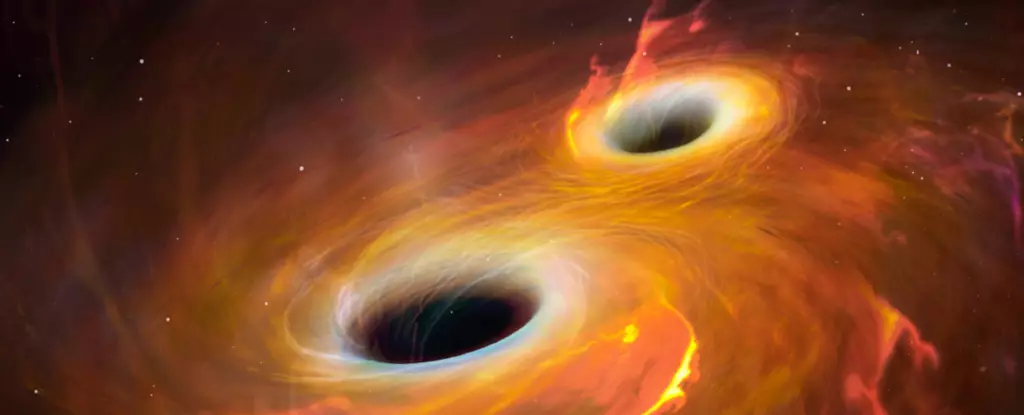The quest for generating more energy from less material without increasing our reliance on fossil fuels has led to the exploration of some unconventional ideas. While advancements in nuclear fusion and solar panel technology have been promising, the challenge of storing and releasing energy efficiently on the electricity grid remains. The increasing adoption of solar panels in strategic locations like car parks and green roofs is contributing to the overall gains in energy production. However, the key issue lies in finding effective energy storage solutions that can meet the demands of the grid.
In a recent development, two physicists have delved into the theoretical limits of battery energy density by drawing inspiration from Einstein’s general theory of relativity. By considering the behavior of microscopic black holes in a highly compact space filled with energy, they proposed a revolutionary concept. These tiny charged black holes, each equivalent to one Planck mass, could be arranged in configurations that offset gravitational forces with electromagnetic repulsion, creating stable energy storage systems.
The concept suggests that oppositely charged micro black holes could be merged together to form a single black hole that rapidly “evaporates” into pure energy. This approach leverages the concentrated gravity around the black hole to extract energy, offering a tantalizing prospect of generating massive amounts of clean energy. While the existence of such micro black holes remains theoretical, the idea reflects the immense potential for innovation in battery technology.
According to theoretical physicist Espen Haug and physicist Gianfranco Spavieri, current battery technology is only scratching the surface of its capabilities. The most efficient lithium batteries today contain a fraction of the energy that could be harnessed from a micro black hole battery. The theoretical estimation suggests that a one-kilogram micro black hole battery could provide energy that surpasses the capacity of existing lithium batteries by a staggering margin, making it a potentially game-changing innovation.
While the idea of micro black hole batteries presents an intriguing vision for the future of energy storage, it also raises several questions and challenges. The feasibility of creating and managing such minuscule black holes, as well as the safety and ethical implications, are important factors to consider. The proposal pushes the boundaries of what is currently achievable in battery technology, highlighting the need for continued research and exploration in this field.
As Haug and Spavieri emphasize, realizing the full potential of battery technology may require a transformative shift akin to the evolution of computer technology. While the concept of micro black hole batteries may seem far-fetched at present, it serves as a thought-provoking reminder of the boundless possibilities for innovation in energy storage. The future of energy may be shaped by bold ideas and visionary thinking, paving the way for a sustainable and efficient power grid.
The theoretical limits of battery energy density offer a glimpse into a future where clean and abundant energy could be stored and utilized in ways previously unimaginable. While the path to achieving such innovations may be long and challenging, the journey toward revolutionizing energy storage is fueled by the relentless pursuit of scientific discovery and technological advancement.

Leave a Reply